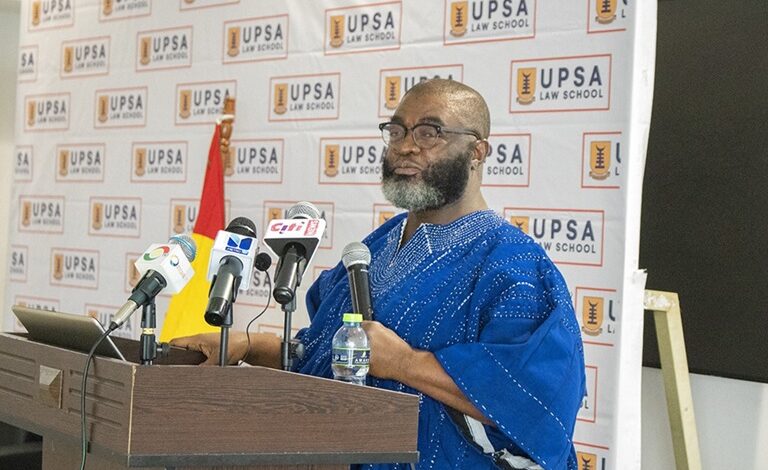Ofosu-Dorte chides public officers for complicity in dollarization of Ghana’s economy

David Ofosu-Dorte, Founder and Senior Partner of AB & David Africa, a prominent pan-African business law firm, has raised concerns over the dollarization of Ghana’s economy. He expressed disappointment over the pervasive role public officials play in perpetuating the strength of the US dollar over the Ghanaian cedi.
Ofosu-Dorte criticized the actions of public officers who, through various economic activities and policies, contribute to the dominance of the dollar in local transactions. This situation exacerbates the depreciation of the cedi, undermining its value and stability.
The dollarization of the economy means that many transactions within Ghana, from real estate deals to school fees, are increasingly being conducted in US dollars rather than the local currency. This practice has significant repercussions for the cedi, including heightened exchange rate volatility and inflationary pressures. As the demand for dollars rises, the cedi weakens, making imports more expensive and increasing the cost of living for ordinary Ghanaians.
Moreover, businesses and individuals often prefer holding dollars over cedis as a hedge against inflation and currency depreciation. This preference further reduces the demand for the local currency, leading to its continuous devaluation. The situation is exacerbated by the reliance on imported goods and services, which requires substantial dollar reserves.
The dollarization trend also reflects a lack of confidence in the cedi and the overall stability of the Ghanaian economy. It poses a challenge for the government and the Bank of Ghana in implementing effective monetary policies. Efforts to stabilize the cedi are often undermined by the pervasive use of the dollar, limiting the effectiveness of policy measures aimed at controlling inflation and managing exchange rates.
Ofosu-Dorte’s remarks underscore the urgent need for comprehensive policy reforms to strengthen the cedi and reduce the economy’s dependence on the US dollar. These reforms could include measures to encourage the use of the cedi in local transactions, enhancing the competitiveness of Ghanaian exports, and improving the overall economic environment to attract more foreign direct investment.
Addressing the issue of dollarization is crucial for ensuring long-term economic stability and growth in Ghana. It requires a concerted effort from both public officials and the private sector to promote confidence in the cedi and build a resilient economy less susceptible to external shocks.




